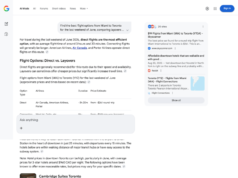
At a conference all about the power of data, the shocking election night results in the presidential race delivered a reminder that data cannot always perfectly predict an outcome — especially when information comes from something as uncertain as polling.
The simple explanation is that polling data is complicated. And, unlike efforts that use scientific data, polling is a social science that relies on human behavior. And people sometimes don’t answer the phone, or they lie, or they change their minds.
Ben Jones is director of Tableau Public, a free version of Seattle-based Tableau’s data visualization software that people use to make and share data. He weighed in on the subject of polling at the company’s annual conference in Austin, Texas.
“There’s a few things out there about polling that a lot of people don’t understand,” Jones said. “One is the uncertainty in polling.”
The process is messy, he said, and relies on people giving their time to talk to pollsters and to answer honestly. Sometimes the polls don’t show a representative sample of voters.
And sometimes the margin of error can make a world of difference. Donald Trump was down in the polls by several percentage points in many swing states heading into Tuesday’s election, but he had gained ground in recent days. He outperformed the polls.
Jones knows there’s uncertainty in polling, and said this will spur many people to look at how the surveys are conducted. But even he didn’t see it coming.
“I’m a data guy,” he said. “I trusted the polls like everybody else. I think we were all pretty surprised.”
The tech industry in Seattle was surprised as well.
Expedia CEO Dara Khosrowshahi, who has said publicly he didn’t support Trump, tweeted late Tuesday night about the intersection of tech and politics.
“As tech leaders we have to admit that we are hugely disconnected with our nation,” he wrote. “I don’t like it but have to recognize this issue.”
Few tech workers supported Trump in the election, with most throwing their support behind Bernie Sanders or Hillary Clinton.
Some startup founders expressed trepidation about Trump earlier in the election season, largely because of his belief that closing the borders is better. Growing startups depend on the ability to expand into markets across the world, and hire the best talent regardless of where that person lives, these founders said.
After Tuesday’s election, Redmond startup founder Reetu Gupta was left with a concern for her young daughters, and questions about the health of her education tech business Cirkled in.
“Will he have policies that discourage education, instead of encouraging it?” she asked. “If he is talking about bringing manufacturing jobs back, he is not going to make college more affordable or have policies that support education. This is horrifying for us as business and as parents.”
Though the overall impact of the election on local business is yet to be determined, one thing we can count on seems to be uncertainty. Businesses and investors are unlikely to make big decisions until it’s clear what policies Trump will implement.
“There’s so much uncertainty that’s injected into the economy, it’s going to put a break on investments,” said Michael Schutzler, CEO of the Washington Technology Industry Association. “… When you inject this much uncertainty into the system, you’re very likely going to have a recessionary force.”
© 2016 Seattle Times under contract with NewsEdge. -.





![[Interview] [Galaxy Unpacked 2026] Maggie Kang on Making](https://loginby.com/itnews/wp-content/uploads/2026/02/Interview-Galaxy-Unpacked-2026-Maggie-Kang-on-Making-100x75.jpg)